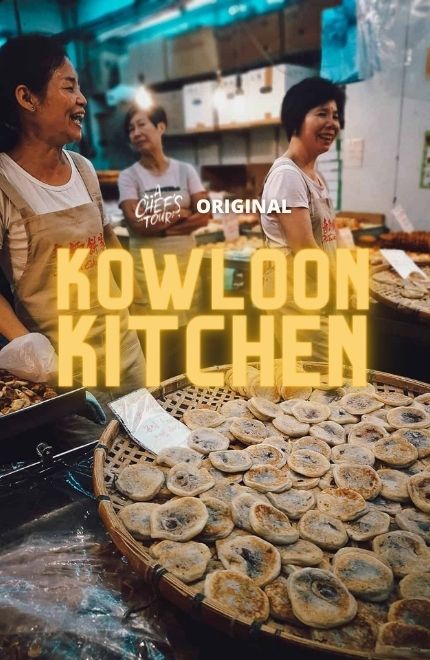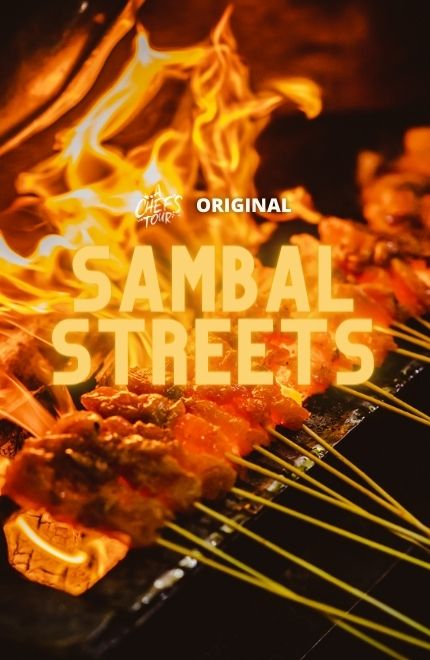While noodles will never fall out of favour in Hong Kong, their production is almost entirely made in factories. There’s just a handful of traditional bamboo noodle Hong Kong makers (jook-sing min) left – masters of an old-school technique that’s quickly becoming unviable in one of the world’s most expensive cities.
No machinery, however, can replicate the distinctive elastic almost chewy texture of the real deal. It’s still possible to find these labour-intensive egg bamboo noodles in Hong Kong, but it’s fair to say it’s a dying art.
Their origins began in the early 20th century when street hawkers in Guangzhou would carry their equipment using bamboo poles. Sometime later, they realised that the bamboo was the perfect tool for kneading the dough.
Making just 100 portions can take over 2 hours. Chefs first need to make the noodle dough by cracking 50 eggs, typically from ducks which impart a rich yellow colour to the noodles, into a well in the flour. It’s then brought together and kneaded by hand with a little oil.
Then the magic begins. A large bamboo pole is hooked onto the wall above the noodles while the chef bounces on the other end much like a seesaw flattening the dough for at least 45 minutes. Once it reaches the optimal texture and thickness, it’s sliced into strips ready for blanching.
Today, it’s only locals who appreciate the springiness of the Hong Kong bamboo noodles and curious foreigners who are creating enough demand. Unfortunately, much of Hong Kong’s youth are disinterested in keeping the laborious process alive.
We get it. It’s time-consuming, repetitive and inefficient, particularly when automated machines can do the grunt work.
There is a glimmer of hope though. The 2013 documentary A Bite of China featured Kwan Kee, a tiny Hong Kongese restaurant which led to a renewed interest in the art. The proprietor, Mr. Lee, determined to keep the tradition going is teaching his sons to carry on the craft of bamboo noodle making.
Want to try a bowl of bamboo noodles in Hong Kong ? Make a beeline to one of these restaurants. Or join our Hong Kong food tour and let our expert lead the way.

Lau Sum Kee Noodle
48 Kweilin Street
+852 2386 3533
This third-generation family of Hong Kong bamboo noodle makers have been bouncing on dough since the mid-1950s.
The current owner’s grandfather fled China bringing the technique with him and sold the bamboo rod noodles from a street cart.
In the 1970s, the family acquired a license to open a dai pai dong (a Hong Kong street food stall) and later purchased their first restaurant in the early 1990s.
The owner, Jason Lau, began learning the process at just 10 years old and later took over from his father. If you’re lucky enough to nab a table, try the wanton Hong Kong bamboo noodles with dry shrimp roe and crunchy radish pickles.
More from A Chef's Tour Maps
The last of the Hong Kong’s dai pai dong
How to navigate the cha chaan teng in Hong Kong
The essential guide to Hong Kong street food
Kwan Kee Bamboo Noodle
1 Wing Lung Street
+852 3484 9126
Hong Kong's Kwan Kee doesn’t have the same history – it was opened in 2010 – they have faithfully preserved the traditional technique of bamboo noodles to such an extent that they’ve received a Bib Gourmet nod from Michelin for five consecutive years.
Highlights include the fresh shrimp wantons with noodles and the tossed noodles with oyster sauce and shrimp roe. Accompany with cuttlefish balls and slices of marinated beef slices. Feeling hungry? Complete with their signature pig trotters.
Good Hope Noodles
123 Sai Yee Street
+852 2393 9036
For over 40 years, this tiny shophouse has been producing egg Hong Kong bamboo noodles the old-school way.
While many other traditional bamboo noodles shops in Hong Kong have died out, Good Hope Noodles still continues to create their signature springy noodles best eaten with their prawn wontons and some braised trotters on the side. If you get there at the right time, you can even watch them being made.
Fantastic cooking without the sky high prices. Around US $6.50 will get you a bowl of the good stuff.

Want to try Hong Kong bamboo noodles? Hungry for more? Try this daily Hong Kong food tour on for size. Over four hours, you'll be led to the best eats in town with an expert local foodie guide.

A Chef's Tour
Sign up for our newsletter.






